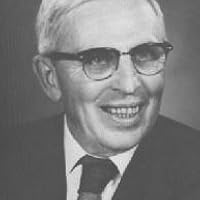Social Pressure Quotes
Quotes tagged as "social-pressure"
Showing 1-24 of 24

“Some people think they can find satisfaction in good food, fine clothes, lively music, and sexual pleasure. However, when they have all these things, they are not satisfied. They realize happiness is not simply having their material needs met. Thus, society has set up a system of rewards that go beyond material goods. These include titles, social recognition, status, and political power, all wrapped up in a package called self-fulfillment. Attracted by these prizes and goaded on by social pressure, people spend their short lives tiring body and mind to chase after these goals. Perhaps this gives them the feeling that they have achieved something in their lives, but in reality they have sacrificed a lot in life. They can no longer see, hear, act, feel, or think from their hearts. Everything they do is dictated by whether it can get them social gains. In the end, they've spent their lives following other people's demands and never lived a life of their own. How different is this from the life of a slave or a prisoner?”
― Lieh-tzu: A Taoist Guide to Practical Living
― Lieh-tzu: A Taoist Guide to Practical Living
“Why is it okay to put someone to death, but it’s not okay for those people to do it themselves?”
― Suicide Notes
― Suicide Notes

“I’ve been trying to make you happy for six years now, hoping somehow that would make me happy too, but I don’t think it’s working. You’re not really happy with me because I’m not happy with you because I’m not happy with me.”
― Again, But Better
― Again, But Better

“I guess they always end up making me feel like I’m not welcome to be myself.”
― Again, But Better
― Again, But Better

“All social orders command their members to imbibe in pipe dreams of posterity, the mirage of immortality, to keep them ahead of the extinction that would ensue in a few generations if the species did not replenish itself. This is the implicit, and most pestiferous, rationale for propagation: to become fully integrated into a society, one must offer it fresh blood. Naturally, the average set of parents does not conceive of their conception as a sacrificial act. These are civilized human beings we are talking about, and thus they are quite able to fill their heads with a panoply of less barbaric rationales for reproduction, among them being the consolidation of a spousal relationship; the expectation of new and enjoyable experiences in the parental role; the hope that one will pass the test as a mother or father; the pleasing of one’s own parents, not to forget their parents and possibly a great-grandparent still loitering about; the serenity of taking one’s place in the seemingly deathless lineage of a familial enterprise; the creation of individuals who will care for their paternal and maternal selves in their dotage; the quelling of a sense of guilt or selfishness for not having done their duty as human beings; and the squelching of that faint pathos that is associated with the childless. Such are some of the overpowering pressures upon those who would fertilize the future. These pressures build up in people throughout their lifetimes and must be released, just as everyone must evacuate their bowels or fall victim to a fecal impaction. And who, if they could help it, would suffer a building, painful fecal impaction? So we make bowel movements to relieve this pressure. Quite a few people make gardens because they cannot stand the pressure of not making a garden. Others commit murder because they cannot stand the pressure building up to kill someone, either a person known to them or a total stranger. Everything is like that. Our whole lives consist of metaphorical as well as actual bowel movements, one after the other. Releasing these pressures can have greater or lesser consequences in the scheme of our lives. But they are all pressures, all bowel movements of some kind. At a certain age, children are praised for making a bowel movement in the approved manner. Later on, the praise of others dies down for this achievement and our bowel movements become our own business, although we may continue to praise ourselves for them. But overpowering pressures go on governing our lives, and the release of these essentially bowel-movement pressures may once again come up for praise, congratulations, and huzzahs of all kinds.”
― The Conspiracy Against the Human Race
― The Conspiracy Against the Human Race

“She was having a violent reaction against beautiful clothes and the slavery they impose on one, her experience being that the instant one had got them they took one in hand and gave one no peace till they had been everywhere and been seen by everybody. You didn't take your clothes to parties; they took you. It was quite a mistake to think think that a woman, a really well-dressed woman wore out her clothes; it was the clothes that wore out the woman- dragging her about at all hours of the day and night.”
― The Enchanted April
― The Enchanted April

“Become a great artist. That is the only way to justify what you are doing to everyone's life.'... I did not understand what he meant. I did not feel I had to justify anything... I did not want to paint in order to justify anything, I wanted to paint because I wanted to paint. I wanted to paint the same way my father wanted to travel and work for the Rebbe. My father worked for Torah. I worked for - what? How could I explain it? For beauty? No. Many of the pictures I painted were not beautiful. For what, then? For a truth I did not know how to put into words. For truth I could only bring to life by means of color and line and texture and form.”
― My Name Is Asher Lev
― My Name Is Asher Lev

“heeping (noun): a state of mindlessly following others when in fact you know the truth and the right actions you must take, but you don’t want to overcome social resistance, accept the brief emotional pain of going against social pressure, and assume full responsibility for your life.”
― The Pursuit of Dreams: Claim Your Power, Follow Your Heart, and Fulfill Your Destiny
― The Pursuit of Dreams: Claim Your Power, Follow Your Heart, and Fulfill Your Destiny

“What made their marriage more than a run-of-the-mill case of domestic estrangement was her refusal to accept her lot. She stayed furious all the days of her life - so sure of her ground, so successfully spoiled, that she was impervious to the social pressures and propaganda that made most women settle down to play the part of wife.”
―
―

“The very ones whose social pressure cause you to compromise will despise you for it. They probably respect your convictions,
and many of them wish they had the moral stamina to stand alone.
May the Lord give you added courage to be a witness for Him,
even in a hard place.”
― Billy graham in quotes
and many of them wish they had the moral stamina to stand alone.
May the Lord give you added courage to be a witness for Him,
even in a hard place.”
― Billy graham in quotes

“What I mean is, she doesn't need to collect things for the sake of collecting them. She never has. She only wears gowns that make her feel beautiful, and she only spends time with people whose company she likes. She wants to please herself, not others. It doesn't matter to her if the things she likes are the ones other people think are the best.”
― It Takes Two to Tangle
― It Takes Two to Tangle

“People so enjoy bring on the move, getting noticed back home, and boasting of what they have seen on their travels, that the two happy men resolved to be happy no longer...”
― Candide
― Candide
“Because a child is bound to grow, society is intent upon cultivating the child’s mind to mature into a very specific type of responsible person. Children take great pleasure in small things that have no practical purpose in their dreamy world where they can be as wild as wind. Each year a part of the child dies, as it is burden with adult responsibilities.”
― Dead Toad Scrolls
― Dead Toad Scrolls

“Many of the men who did not really want to get married are married to women who did not really want to get married.”
―
―
“I have never been more relieved than on the morning of my fortieth birthday...it felt like I'd been released.”
― No One Tells You This
― No One Tells You This

“Until you have lost your reputation you never know what a burden it was or what freedom is.”
― Gone with the Wind
― Gone with the Wind

“But I had their instant, magnetic liking for my enemy and before I knew where, or even who I was, I had become prisoner of the effect I had on them. [...] I was shackled not so much to my good looks, as to what people, after seeing me, first imagined and then through their imaginations compelled me to be.”
― The Seed and The Sower
― The Seed and The Sower
“Teach him to call it ‘real-life and don’t let him ask what he means by ‘real’. (...) Never having been human (...) you don’t realise how enslaved they are to the pressure of the ordinary. (...) Thanks to processes we set at work in them centuries ago, they find it all but impossible to believe in the unfamiliar while the familiar is before their eyes. Keep pressing home on him the ordinariness of things. (...) But the best of all is to let him read no science but to give him a grand general idea that he knows it all and that everything he happens to have picked up in casual talk and reading is ‘the results of modern investigation’. Do remember you are there to fuddle him.”
― The Screwtape Letters
― The Screwtape Letters

“Neighborliness means you give up your right to live your life the way you want to live it.”
― Day of Truce
― Day of Truce
“Instead of reacting to the social pressures pulling you to go in a million directions, you will learn a way to reduce, simplify, and focus on what is absolutely essential by eliminating everything else.”
― Essentialism: The Disciplined Pursuit of Less
― Essentialism: The Disciplined Pursuit of Less

“The social rewards for going with the crowd are felt long before the benefits of going against it are gained.”
― Clear Thinking: Turning Ordinary Moments into Extraordinary Results
― Clear Thinking: Turning Ordinary Moments into Extraordinary Results
“I was not enjoying this any longer but I kept turning towards it, and I could not explain why. Was it just because my friends did drugs? Was it because of social pressure or loneliness? Was it because of dependency and habit? For some reason, any alternative seemed better than sobriety. I kept telling myself that I chose this path because it was more fun, more interesting, and more eventful. I told myself that the people who failed to choose it were just afraid to let go and live. Then I would go and have the craziest adventures, and each one would propel me deeper into this lifestyle. Somewhere deep down, I knew that I was lying to myself, and yet each escapade pulled me deeper into
my own little biosphere of lies and delusions.”
― Pursued: God’s relentless pursuit and a drug addict’s journey to finding purpose
my own little biosphere of lies and delusions.”
― Pursued: God’s relentless pursuit and a drug addict’s journey to finding purpose

“Our current definition of health is tied to the state and employers' desire for productive, inoffensive conformity...It is only by expanding our definition of what is acceptable human behaviour and working to meet other people's manifold needs that we can move forward.”
― Unmasking Autism: Discovering the New Faces of Neurodiversity
― Unmasking Autism: Discovering the New Faces of Neurodiversity
All Quotes
|
My Quotes
|
Add A Quote
Browse By Tag
- Love Quotes 97.5k
- Life Quotes 76k
- Inspirational Quotes 73k
- Humor Quotes 43.5k
- Philosophy Quotes 29.5k
- Inspirational Quotes Quotes 27k
- God Quotes 26k
- Truth Quotes 23.5k
- Wisdom Quotes 23.5k
- Romance Quotes 23k
- Poetry Quotes 22k
- Death Quotes 20k
- Happiness Quotes 18.5k
- Life Lessons Quotes 18.5k
- Hope Quotes 18k
- Faith Quotes 18k
- Quotes Quotes 16.5k
- Inspiration Quotes 16.5k
- Spirituality Quotes 15k
- Religion Quotes 15k
- Motivational Quotes 15k
- Writing Quotes 15k
- Relationships Quotes 14.5k
- Life Quotes Quotes 14k
- Love Quotes Quotes 14k
- Success Quotes 13.5k
- Time Quotes 12.5k
- Motivation Quotes 12k
- Science Quotes 11.5k
- Motivational Quotes Quotes 11.5k


